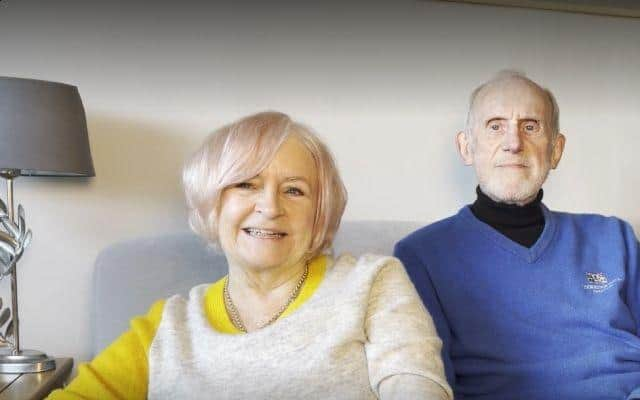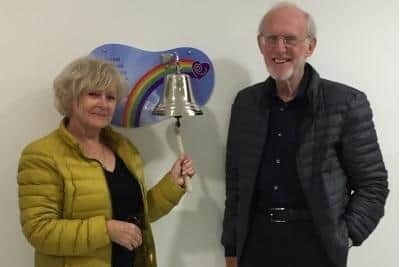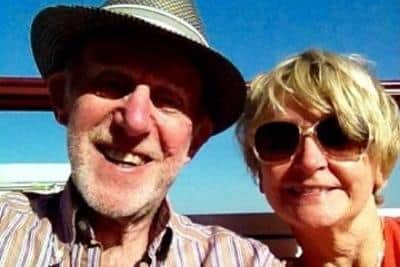Yorkshire couple now free from cancer thank Leeds' advances in medical research
Judy Hatton was diagnosed with bowel cancer 13 years after her husband Trevor Thewlis, but thanks to new treatments does not face the same impact.
Fifty people are diagnosed with some form of cancer every day in Leeds. The couple from Cookridge have shared their story as this weekend marked World Cancer Day, and the first anniversary of the Leeds Cancer Research Centre (LCRC) which has already made significant and life-saving advances in the fight against cancer.
Advertisement
Hide AdAdvertisement
Hide AdTo Ms Hatton, thanks to an ongoing bowel cancer trial, advances mean she hasn't faced the same harrowing ordeal her husband has with side effects after surgery.


“I am very grateful for the advances in medical science and in radiotherapy," she said. "I am grateful for the very existence of trials like this that continue to improve people’s outcomes and people’s lives.”
Ms Hatton, 76, was diagnosed in 2019, 13 years after her husband was treated for the very same cancer. Mr Thewlis, now 82, had standard treatment including surgery, leaving him with a stoma bag and a permanent ileostomy which has to be changed every three hours.
But under a STAR-TREC trial Ms Hatton was able to avoid surgery altogether, instead having a five-week course of radiotherapy and tablets which eradicated her tumour.
Advertisement
Hide AdAdvertisement
Hide AdThe couple were treated by the same doctor, 16 years apart. Professor David Sebag-Montefiore, co-leader of the trial, said it was "incredible" to see their progress. The Professor of Clinical Oncology at the University of Leeds, who is also director of the Leeds Cancer Research Centre, said research here was leading the way.


He added: "Judy and Trevor’s story is testament to the impact cancer research is having on people’s lives, and their quality of life too.”
The LCRC brings together scientists and clinicians across disciplines, transforming diagnosis and treatment, and tackling health inequalities. The LCRC is a University of Leeds partnership with Leeds Teaching Hospitals NHS Trust, and in its first year has already made several significant advances.
Among them, a £7m project into secondary bone tumours of the spine, and developing a magnetic 'tentacle robot' which can reach most areas of the lungs to improve detection. A new trial has also opened into prostate cancer, while work is investigating the impact of genetics.
Advertisement
Hide AdAdvertisement
Hide AdUniversity of Leeds’ Vice-Chancellor and President Professor Simone Buitendijk said cancer research was producing some “incredible” results, shaping a better future.


Professor Phil Wood, chief executive of Leeds Teaching Hospitals, said 13,000 patients here joined research studies last year: "What once seemed impossible in cancer research and care has now become a reality thanks to a number of technological innovations that have led to breakthroughs. Our goal is to accelerate progress against this disease so that all patients can have a successful outcome like Judy.”